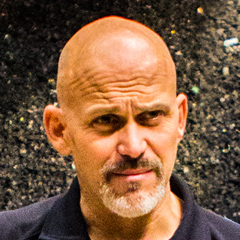
Warrior Expert Theory: Learn to Use the Power of Recognition
Rob PincusWarrior Expert Theory holds that the more frequently and realistically you train, the more likely you will be able to use the power of recognition to respond more efficiently during a dynamic critical incident. Frequent and repeated exposure over time is how you become an expert, and experts use the power of recognition, meaning they don’t have to think about something, they just know how to respond. Rob Pincus discusses this concept during a presentation at the 2015 NRA Annual Meeting and Exhibits.
Share tips, start a discussion or ask other students a question. If you have a question for an expert, please click here.
Already a member?
One Response to “Warrior Expert Theory: Learn to Use the Power of Recognition”
Warrior Expert Theory. This is the most important concept that we have in the program. Balance of speed and precision is the most important concept when it comes to our shooting stuff. Warrior Expert Theory, the more frequent and realistically you train, the more likely you will be to be able to use the power of recognition, to respond more efficiently, during a dynamic critical incident, an actual fight. Dynamic critical incident is just our fancy word for the actual flight.
So let's look at this. Through frequent and realistic training. What is frequent and realistic? I don't know. Because your context is what determines what is realistic.
Your budget, your access to a range, your interest, your justification, in the training budget that you're gonna establish. That's what determines what is frequent. If you're getting ready to go overseas as a private security contractor in a war zone, you can probably justify a much greater frequency than the person who's been shooting for 30 years and carries a gun five days a week and lives in a rural community with very little interpersonal crime. You know if you're shooting every day and you're that guy, you're not doing it for training and practice, you're a shooter. You're a hobbyist.
You're a recreational shooter. You enjoy shooting. That's great. But if you're trying to justify that as your training need, my suggestion would be you don't shoot so much and you do some other things. You get some medical training, get some unarmed training, do some fitness stuff, read some books, do some research about crime trends.
There's others, make your house more secure. There's other things that you can do, to make yourself better than just shoot. Don't make it all about the gun. I think that's really important. So, let's talk about this.
Let's think about this. Frequent and realistic, we got that covered. Now we're gonna go forward. The power of recognition. How many of you are experts?
Raise your hand. Everyone raise your hand. All of you sitting in this room, raise your hands right now. You are all experts at something. You might only be experts in your family tree.
You may be experts in how your kitchen cabinets are arranged. If I go into your kitchen and I say, "Hey, where are the glasses?" You're gonna point to the right cabinet. You are a kitchen organization expert for your kitchen. That's fine. Some of you may have other areas of expertise, medical, computer programming, the English language.
You may know a lot about stamp collecting. I don't know. You may be experts in terms of personal defense and firearms. You may know a lot about hunting cartridges. You may know a lot about rifles model numbers and all that kind of stuff.
You're an expert in some area. How did you get to be an expert in whatever area you have expertise in? Practice, education, frequent and repeated exposure. So, lots of repetitions of exposure to some set of information in a condensed time period, and then especially over an extended time here. So very frequent, that's the condensed time period.
And then over a long period of time, that's how you get to be an expert. So if you constantly expose yourself to things like what is your balance of speed and precision, you're much more likely to become an expert to have an accurate understanding of how quickly you can shoot a chest, under a variety of circumstances, and more likely to have an appropriate confidence when it comes to driving that gun out and applying the right amount of skill to get the hit you need to get. So, frequent repeated exposure over time. That's how you become an expert. Experts use the power of recognition.
You didn't have to think about where the glasses are, you know where the glasses are. When I say, "where are the glasses in your house?" You probably recognize that as something people say when they visit your house and you always point, "Oh, right there." Or you have a phrase you use, "To the left of the refrigerator, "just to the left of the oven. "Right above that can of cookies." Whatever your phrase is that you use to direct people to glasses in your kitchen, you recognized what you needed to say to get that person to the glasses when I gave you that time, when I gave you that prompt.

I am very sorry if I disturb anyone. BUT please tell me how Mr. Pincus has the 'cred's' to instruct in "warrior" anything ? I have never heard any of his past exploits,or combat experiences. I am not doubting his credibility ,but would like to know how it is he "knows".